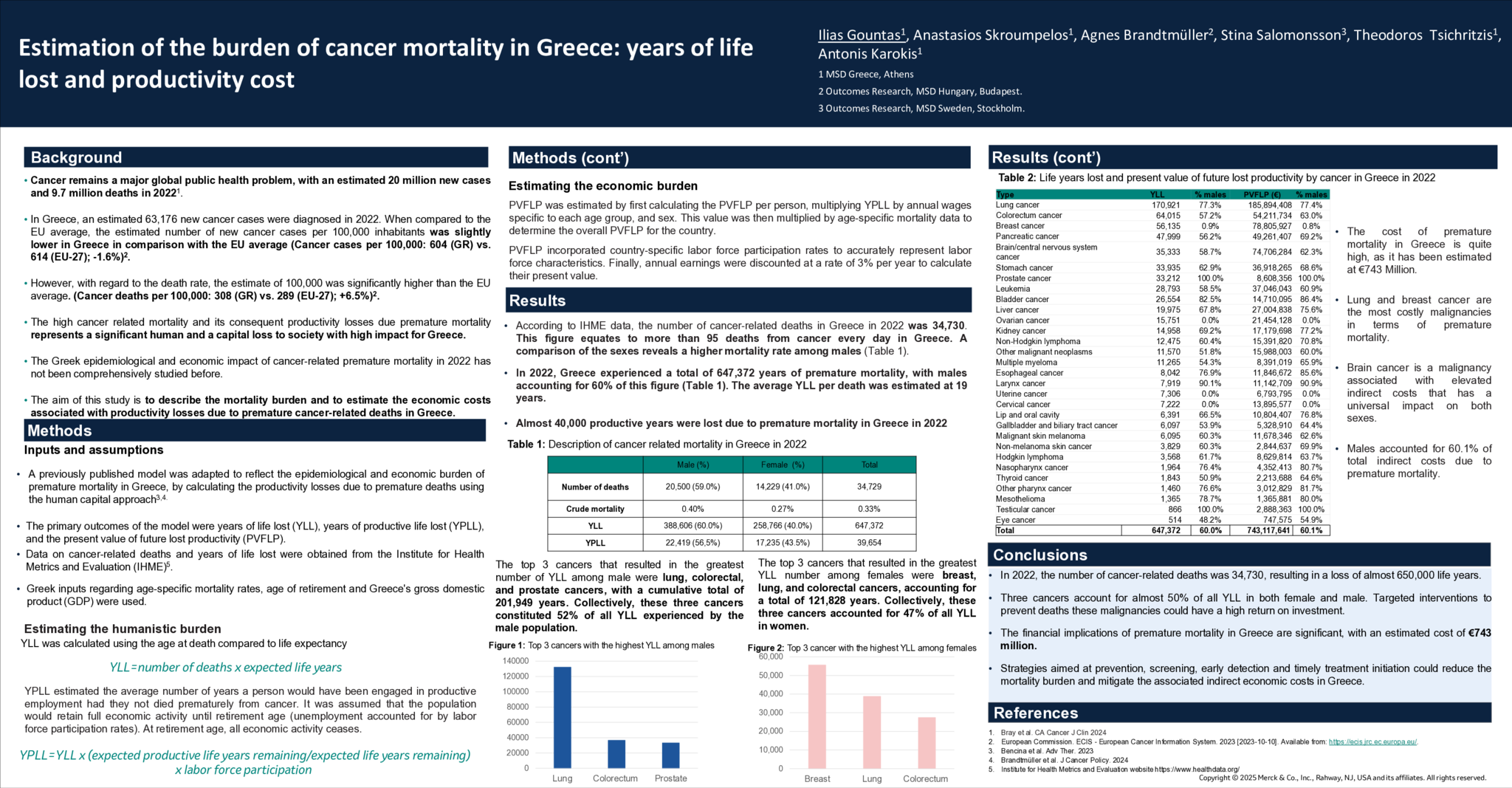Background: Cancer is among the leading causes of death worldwide. It is important to highlight that the cancer-related economic burden extends beyond direct healthcare expenditures, encompassing significant indirect costs due to premature mortality and productivity losses. In Greece, the epidemiological and economic impact of cancer-related mortality of 2022 has not been studied. Aim: This study aims to describe the mortality burden and to estimate the economic costs associated with productivity losses due to premature cancer-related deaths in Greece. Method: Data on cancer-related deaths and years of life lost (YLL) were obtained from the Institute for Health Metrics and Evaluation. Age-specific mortality rates and Greece's gross domestic product per capita were used to calculate productive life lost years (YPLL). To compute the economic burden, expressed as the present value of future lost productivity (PVFLP), YLL was adjusted for labor-force participation, retirement age, and Greek mean annual earnings. A discount rate of 3% was applied to account for future earnings. Results: In 2022, cancer-related deaths in Greece totaled 34,730, representing over 25% of all observed deaths in Greece. The cancer-related crude mortality rate was estimated at 0.33%, with males accounting for 59% of these deaths. The most prevalent cancer-related deaths were lung cancer (24.2%), colorectal cancer (11.2%), and breast cancer (8.5%). The total number of YLL due to cancer was 647,372, with 60.0% of YLL attributed to males. The average YLL was 18.6 years, while the total YPLL was estimated at 39,645. The overall PVFLP due to cancer-related mortality in 2022 was estimated at €900 Million. Conclusions: The number of cancer deaths in Greece in 2022 resulted in a substantial epidemiological and economic burden. Strategies aimed at prevention, early screening, detection, and optimal treatment initiation could reduce the mortality burden and mitigate the associated economic costs in Greece.
- 2 προβολές




